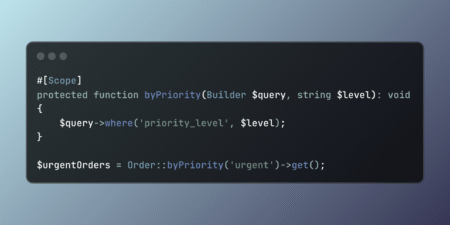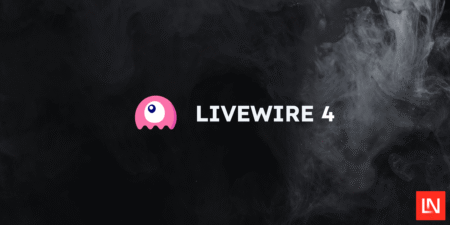Whether you’re building embedded software for next-gen diagnostics, modernizing lab systems, or scaling user-facing platforms, the pressure to innovate is universal, and AI is becoming a key differentiator. When embedded into the software development lifecycle (SDLC), AI offers a path to reduce costs, accelerate timelines, and equip the enterprise to scale with confidence.
But AI doesn’t implement itself. It requires a team that understands the nuance of regulated software, SDLC complexities, and the strategic levers that drive growth. Our experts are helping MedTech leaders move beyond experimentation and into execution, embedding AI into the core of product development, testing, and regulatory readiness.
“AI is being used to reduce manual effort and improve accuracy in documentation, testing, and validation.” – Reuters MedTech Report, 2025
Whether it’s generating test cases from requirements, automating hazard analysis, or accelerating documentation, we help clients turn AI into a strategic accelerator.
AI-Accelerated Regulatory Documentation
Outcome: Faster time to submission, reduced manual burden, improved compliance confidence
Regulatory documentation remains one of the most resource-intensive phases of medical device development.
- Risk classification automation: AI can analyze product attributes and applicable standards to suggest classification and required documentation.
- Drafting and validation: Generative AI can produce up to 75% of required documentation, which is then refined and validated by human experts.
- AI-assisted review: Post-editing, AI can re-analyze content to flag gaps or inconsistencies, acting as a second set of eyes before submission.
AI won’t replace regulatory experts, but it will eliminate the grind. That’s where the value lies.
For regulatory affairs leaders and product teams, this means faster submissions, reduced rework, and greater confidence in compliance, all while freeing up resources to focus on innovation.
Agentic AI in the SDLC
Outcome: Increased development velocity, reduced error rates, scalable automation
Agentic AI—systems of multiple AI agents working in coordination—is emerging as a force multiplier in software development.
- Task decomposition: Complex development tasks are broken into smaller units, each handled by specialized agents, reducing hallucinations and improving accuracy.
- Peer review by AI: One agent can validate the output of another, creating a self-checking system that mirrors human code reviews.
- Digital workforce augmentation: Repetitive, labor-intensive tasks (e.g., documentation scaffolding, test case generation) are offloaded to AI, freeing teams to focus on innovation. This is especially impactful for engineering and product teams looking to scale development without compromising quality or compliance.
- Guardrails and oversight mechanisms: Our balanced implementation approach maintains security, compliance, and appropriate human supervision to deliver immediate operational gains and builds a foundation for continuous, iterative improvement.
Agentic AI can surface vulnerabilities early and propose mitigations faster than traditional methods. This isn’t about replacing engineers. It’s about giving them a smarter co-pilot.
AI-Enabled Quality Assurance and Testing
Outcome: Higher product reliability, faster regression cycles, better user experiences
AI is transforming QA from a bottleneck into a strategic advantage.
- Smart regression testing: AI frameworks run automated test suites across releases, identifying regressions with minimal human input.
- Synthetic test data generation: AI creates high-fidelity, privacy-safe test data in minutes—data that once took weeks to prepare.
- GenAI-powered visual testing: AI evaluates UI consistency and accessibility, flagging issues that traditional automation often misses.
- Chatbot validation: AI tools now test AI-powered support interfaces, ensuring they provide accurate, compliant responses.
We’re not just testing functionality—we’re testing intelligence. That requires a new kind of QA.
For organizations managing complex software portfolios, this transforms QA from a bottleneck into a strategic enabler of faster, safer releases.
AI-Enabled, Scalable Talent Solutions
Outcome: Scalable expertise without long onboarding cycles
AI tools are only as effective as the teams that deploy them. We provide specialized talent—regulatory technologists, QA engineers, data scientists—that bring both domain knowledge and AI fluency.
- Accelerate proof-of-concept execution: Our teams integrate quickly into existing workflows, leveraging Agile and SAFe methodologies to deliver iterative value and maintain velocity.
- Reduce internal training burden: AI-fluent professionals bring immediate impact, minimizing ramp-up time and aligning with sprint-based development cycles.
- Ensure compliance alignment from day one: Specialists understand regulated environments and embed quality and traceability into every phase of the SDLC, consistent with Agile governance models.
Whether you’re a CIO scaling digital health initiatives or a VP of Software managing multiple product lines, our AI-fluent teams integrate seamlessly to accelerate delivery and reduce risk.
Proof of Concept Today, Scalable Solution Tomorrow
Outcome: Informed investment decisions, future-ready capabilities
Many of the AI capabilities discussed are already in early deployment or active pilot phases. Others are in proof-of-concept, with clear paths to scale.
We understand that every organization is on a unique AI journey. Whether you’re starting from scratch, experimenting with pilots, or scaling AI across your enterprise, we meet you where you are. Our structured approach delivers value at every stage, helping you turn AI from an idea into a business advantage.
As you evaluate your innovation and investment priorities across the SDLC, consider these questions:
- Are we spending too much time on manual documentation?
- Do we have visibility into risk classification and mitigation?
- Can our QA processes scale with product complexity?
- How are we building responsible AI governance?
- Do we have the right partner to operationalize AI?
Final Thought: AI Demands a Partner, Not Just a Platform
AI isn’t the new compliance partner. It’s the next competitive edge, but only when guided by the right strategy. For MedTech leaders, AI’s real opportunity comes by adopting and scaling it with precision, speed, and confidence. That kind of transformation can be accelerated by a partner who understands the regulatory terrain, the complexity of the SDLC, and the business outcomes that matter most.
No matter where you sit — on the engineering team, in the lab, in business leadership, or in patient care — AI is reshaping how MedTech companies build, test, and deliver value.
From insight to impact, our industry, platform, data, and AI expertise help organizations modernize systems, personalize engagement, and scale innovation. We deliver AI-powered transformation that drives engagement, efficiency, and loyalty throughout the lifecycle—from product development to commercial success.
- Business Transformation: Deepen collaboration, integration, and support throughout the value chain, including channel sales, providers, and patients.
- Modernization: Streamline legacy systems to drive greater connectivity, reduce duplication, and enhance employee and consumer experiences.
- Data + Analytics: Harness real-time data to support business success and to impact health outcomes.
- Consumer Experience: Support patient and consumer decision making, product usage, and outcomes through tailored digital experiences.
Ready to move from AI potential to performance? Let’s talk about how we can accelerate your roadmap with the right talent, tools, and strategy. Contact us to get started.
Source: Read MoreÂ




